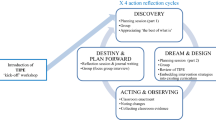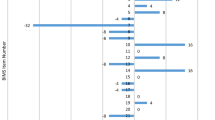Abstract
A depth of ethical knowledge and understanding are essential for the enactment of ethical decisions and actions. Ethics is the foundational core for democratic teaching, learning and educational leadership. It is imperative that the development of ethical insight and the formation of an ethical stance become fundamental elements of both initial and continuing teacher education. Educators must be adept at cultivating ethical cultures within schools and districts. They need to know how to effectively foster the collective ethical capacity of all those with whom they are called to serve. To ensure the highest level of ethical professional practice and action, the collective ethical knowledge, sensitivity, awareness, and efficacy of the teaching profession must continue to evolve. The ongoing ethical formation of the teaching profession is essential for the public’s continued trust and confidence in the ethical actions and practices of the educational community. Educative processes designed to enhance the collective ethical capacity of the teaching profession are explored in this inquiry. Critical reflection and various dialogic processes focusing on the lived ethical experiences encountered within teaching were used for fostering the ethical leadership and decision making of educators.





Similar content being viewed by others
References
Ayers, W. (2004). Teaching toward freedom: Moral commitment and ethical action in the classroom. Boston: Beacon.
Bohm, D., Factor, D., & Garrett, P. (1991). Dialogue: A proposal. Retrieved from http://www.infed.org/archives/e-texts/bohm_dialogue.htm
Bruner, J. S. (1986). Actual minds, possible worlds. Cambridge: Harvard University Press.
Buber, M. (1970). I and Thou. (W. Kaufmann, Trans.). New York, NY: Charles Scriber’s Sons. (Original work published 1923).
Bullough, R., & Pinnegar, S. (2004). Thinking about the thinking about self-study: An analysis of eight chapters. In J. J. Loughran, M. L. Hamilton, V. K. LaBoskey, & T. Russell (Eds.), International handbook of self-study of teaching and teacher-education practices. Dordrecht: Kluwer Academic Publishers.
Clarke, D. J., & Hollingsworth, H. (2000). Seeing is understanding. Journal of Staff Development, 21, 40–43.
Connelly, M. F., & Clandinin, D. J. (1990). Stories of experience and narrative inquiry. Educational Researcher, 19(5), 2–14.
Copeland, W. D., & Decker, D. L. (1996). Video cases and the development of meaning making in preservice teachers. Teaching and Teacher Education, 12, 467–481.
Fullan, M. (2003). The moral imperative of school leadership. Thousand Oaks: Corwin Press.
Geertz, C. (1973). The interpretations of cultures. New York: Basic Books.
Haynes, F. (1998). The ethical school. New York: Routledge.
Hoban, G. (2004). Using information and communication technologies for the self-study of teaching. In J. J. Loughran, M. L. Hamilton, V. K. LaBoskey, & T. Russell (Eds.), International handbook of self-study of teaching and teacher education practices (Part Two (pp. 1030–1072). London: Kluwer.
Hollingsworth, H.F. (2005). Learning about teaching and teaching about learning: Using video data for research and professional learning. Paper presented at the ACER 2005 Research Conference: Using data to support learning, Melbourne, AUS: (147–151).
Ingvarson, L. (2003). Building a learning profession. ACER policy briefs. Camberwell: Australian Council for Educational Research.
Isaacs, W. (1999). Dialogue: The art of thinking together. New York, NY: Doubleday.
Jenlink, P. M., & Kinnucan-Welsch, K. (2001). Case stories of facilitating professional development. Teaching and Teacher Education, 17, 705–724.
Karoly, P. (1993). Mechanisms of self-regulation: a systems view. Annual Review of Psychology, 44, 23–52.
Lambert, J. (2003). Digital storytelling cookbook and traveling companion. Berkeley, CA: Digital Diner. Retrieved from http://www.storycenter.org/cookbook.pdf.
Langlois, L. (2004). Responding ethically: complex decision-making by school district superintendents. International Studies in Educational Administration, 32(2), 78–93.
Langlois, L. (2005). Ethical leadership questionnaire. [Unpublished questionnaire]. Quebec City: Laval University.
Langlois, L. (2007). Ethical profile. Unpublished profile instrument. Quebec City: Laval University.
Langlois, L. (2009). Ethical profile. Unpublished profile instrument. Quebec City: Laval University.
Langlois, L. (2011). The anatomy of ethical leadership. Edmonton: AU Press.
Langlois, L. (2012a). Ethical profile. Unpublished profile instrument. Quebec City: Laval University.
Langlois, L. (2012b). Ethical leadership questionnaire. Survey. Quebec City: Laval University.
Langlois, L. (2014). Ethical profile, Ontario College of Teachers-January 2014 cohort. Quebec City: Laval University.
Langlois, L., & Lapointe, C. (2010). Can ethics be learned? Results from a three-year action-research project. Journal of Educational Administration, 48(2), 147–163.
Lincoln, Y. S., & Guba, E. G. (1985). Naturalistic inquiry. Newbury Park: Sage Publications, Inc.
Loughran, J., & Northfield, J. (1998). A framework for the development of self-study practice. In M. L. Hamilton (Ed.), Reconceptualizing teaching practice: Self-study in teacher education (pp. 7–18). London: Falmer Press.
Lyons, N., & LaBoskey, V. K. (Eds.). (2002). Narrative inquiry in practice: Advancing the knowledge of teaching. New York: Teachers College Press.
McEwan, H., & Egan, K. (Eds.). (1995). Narrative in teaching, learning, and research. New York: Teachers College Press.
Merleau-Ponty, M. (1962). Phenomology of perception. (C. Smith, Trans.). New York, NY: Humanities Press. (Original work published 1942).
Ontario College of Teachers. (2003a). Booklet one: Casework inquiry for educators [Resource Kit 1]. Toronto: Author.
Ontario College of Teachers. (2003b). Booklet two: Exploring ethical knowledge through inquiry [Resource Kit 1]. Toronto, ON: Author.
Ontario College of Teachers. (2003c). Booklet three: Reflecting on practice through a case script and a case scenario [Resource Kit 1]. Toronto: Author.
Ontario College of Teachers. (2003d). Standards in practice: Fostering professional inquiry. [Resource kit 1]. Toronto: Author.
Ontario College of Teachers. (2005). [Ethical standards consultation]. Unpublished raw data.
Ontario College of Teachers. (2006a). A teacher’s story. [Digital Story]. Toronto: Author.
Ontario College of Teachers. (2006b). A principal’s story. [Digital Story]. Toronto: Author.
Ontario College of Teachers. (2006c). Ethical standards for the teaching profession. Toronto: Author.
Ontario College of Teachers. (2006d). Foundations of professional practice. Toronto: Author.
Ontario College of Teachers. (2009a). A self-reflective professional learning tool. Toronto: Author.
Ontario College of Teachers. (2009b). Living the standards [Resource kit 2]. Toronto: Author.
Ontario College of Teachers. (2010). Voices of wisdom [DVD]. Toronto: Author.
Ontario College of Teachers. (2011). Gail. [Digital Story]. Toronto: Author.
Ontario College of Teachers. (2012). [Ethical institute]. Unpublished raw data.
Ontario College of Teachers. (2013a). Exploring ethical professional relationships. Toronto: Author.
Ontario College of Teachers. (2013b). Inquiring into the ethical dimensions of professional practice. Toronto: Author.
Ontario College of Teachers. (2014a). Knowledge keepers. [Digital Story and Discussion Guide]. Toronto: Author.
Ontario College of Teachers. (2014b). [Principal Qualification Program instructor ethical institute report]. Unpublished raw data .
Ontario College of Teachers & Brock University. (2008). Learning from experience: Supporting beginning teachers and mentors [Resource kit 3]. Toronto: Ontario College of Teachers.
Perry, G., & Talley, S. (2001). Online video case studies and teacher education: a new tool for pre-service teacher education. Journal of Computing in Teacher Education, 17(4), 6–31.
Ricoeur, P. (1992). Oneself as another. (K. Blamey, Trans.). Chicago: The University of Chicago Press. Original work published in 1992.
Sergiovanni, T. J. (1992). Moral leadership: Getting to the heart of school improvement. San Francisco: Jossey-Bass.
Shulman, J. H. (Ed.). (1992). Case methods in teacher education. New York: Teachers College Press.
Shulman, J. H., & Colbert, J. A. (Eds.). (1988). The intern teacher casebook. San Francisco: Wested.
Shulman, J. H., Whittaker, A., & Lew, M. (2002). Using assessments to teach for understanding: A casebook for educators. New York: Teachers College Press.
Smith, D. (2003a). Discovering a methodology that reveals ethical knowledge. Leiden: Paper presented at the International Study Association of Teachers and Teaching.
Smith, D. (2003b). Ethical decision making framework. In, Ontario College of Teachers, booklet two: Exploring ethical knowledge through inquiry [Resource Kit 1]. Toronto: Author.
Smith, D. (2012). Supporting new teacher development using narrative-based professional learning. Reflective Practice, 13(1), 149–165.
Smith, D. (2013a). A dialogic construction of ethical standards for the teaching profession. Issues in Teacher Education Journal, 22(1), 49–62.
Smith, D. (2013b). Ethical inquiry process. In Ontario College of Teachers (Ed.), Inquiring into the ethical dimensions of professional practice (pp. 5–6). Toronto: Ontario College of Teachers.
Smith, D., & Goldblatt, P. (Eds.). (2005). Cases for teacher development: Preparing for the classroom. Thousand Oaks: Sage Publications.
Smith, D., & Goldblatt, P. (Eds.). (2006). Casebook guide for teacher education. Toronto: Ontario College of Teachers.
Smith, D., & Goldblatt, P. (2009). Exploring leadership and ethical practice through professional inquiry. Québec: Les Presses de l’Université Laval.
Starratt, R. J. (2004). Ethical leadership. San Francisco: Jossey-Bass.
Starratt, R. J. (2012). Cultivating an ethical school. New York: Routledege.
Strike, K. A., & Soltis, J. F. (1998). The ethics of teaching (3rd ed.). New York: Teachers College Press.
van Manen, M. (2003). Researching lived experience: Human science for an action sensitive pedagogy. London: The Althouse Press.
Witherell, C., & Noddings, N. (Eds.). (1991). Stories lives tell: Narrative and dialogue in education. New York: Teachers College Press.
Author information
Authors and Affiliations
Corresponding author
Rights and permissions
About this article
Cite this article
Smith, D. Fostering Collective Ethical Capacity within the Teaching Profession. J Acad Ethics 12, 271–286 (2014). https://doi.org/10.1007/s10805-014-9218-y
Published:
Issue Date:
DOI: https://doi.org/10.1007/s10805-014-9218-y




